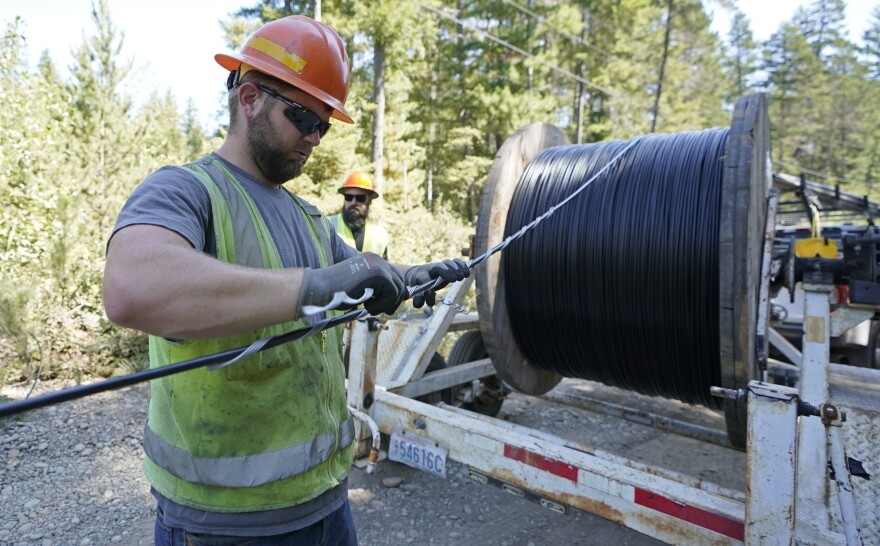Governor Ralph Northam and Democrats in the General Assembly recently appropriated hundreds of millions of dollars to expand broadband across rural parts of Virginia. But, advocates complain that only a small fraction of that money is set aside for helping low-income people connect to the internet.
A handful of legacy telecom providers are about to be the beneficiaries of several hundred million dollars worth of federal stimulus cash – part of a plan devised by the governor and the General Assembly to expand broadband by building new infrastructure across rural Virginia. But what about low-income people who can't afford existing internet service?
"I'm looking at the whole budget and just frankly appalled at how little is really targeted to low-income people," says Kim Bobo at Virginia Interfaith Center for Public Policy. She says there are lots of ideas lawmakers could have funded to help low-income people access the internet.
"You could make it completely free and available around every school that is really low-income," Bobo says. "You could do it at every public housing; making it free for two or three years. There are ways you could have focused additional money and waited for the federal infrastructure dollars.”
Erv Blythe at Virginia Tech says the strategy of helping legacy telecom providers at the expense of municipal or community providers fits into a pattern that dates all the way back to the tobacco profiteering of the Virginia Company of London.
"In Virginia, the state of Virginia, for 400 years, government has been set up to serve powerful corporate interests to the detriment in some cases of community interests," Blythe says.
Democrats who lead the General Assembly say the $700 million investment in expanding broadband will have a huge payoff. It might end up making Virginia one of the first large states to achieve universal broadband access.
This report, provided by Virginia Public Radio, was made possible with support from the Virginia Education Association.


